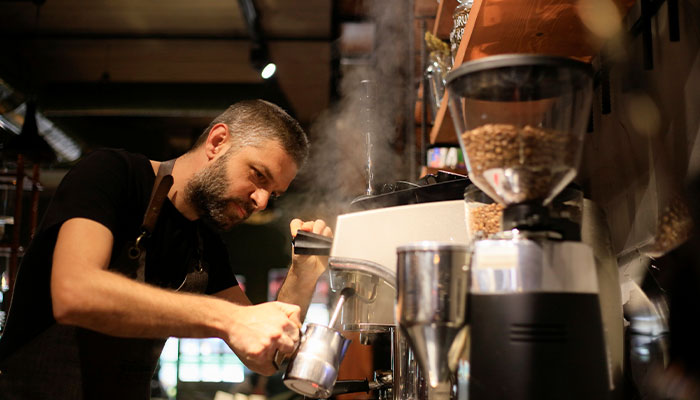is the notion that we should not just do better than we have done before, but that we must do better than our competitors.

CP in action: As tourism opens up again, the providers who best meet the expectations of tourists – relative to their competitors – will do better, says Associate Professor Baumann.
In business, there is often a strong internal focus. Firms worry about themselves, their own processes, their own little in-house fights and power plays. And they get bogged down in complicated bureaucratic processes and committee work.
Inside an organisation, this approach makes everybody “productive” (I’m sooo busy!), but overlooks two important aspects of business: the customer and the competition.
And what is the effect for customers? Well, they have to pay for all that ‘productivity’, albeit indirectly through the price of the product or service the firm sells. There is no benefit to the customer for all that activity. It’s often unnecessary, unwanted fat.
The CP difference
The traditional view of productivity does not consider the competition. They have been treated separately, allowing firms to be very productive and yet completely detached from market realities.

Full of beans: The coffee shop that has CP is the one that gets it right in the eyes of the customer, says Associate Professor Baumann.
CP combines competition with productivity in a new perspective that actually benefits the customer and may result in . It is a paradigm shift in the thinking surrounding productivity, and indeed competitiveness.
Consider your local coffee shop. Why do you go there every day? Do they have better coffee than other shops? Are they friendlier? Are they cheaper? Do they have a better location?
All of these factors – in one way or another – are components of CP. The coffee shop’s productivity is geared to competing with other coffee shops. The coffee shop that has CP is the one that gets it right in the eyes of the customer – customers keep coming back; they recommend it; they post sweet reviews on the Internet.
Another example about to play out before our eyes is in tourism, where a lot of latent demand has built up due to the pause brought about by the pandemic; many have saved up and are keen to travel again. Competition will be intense in this new environment, and the providers who best meet the expectations of tourists – relative to their competitors – will do better. This applies not just at the level of individual businesses but also to Australia as a tourism destination overall.
Taking CP to the world
In September, I took Macquarie Business School (MQBS) colleagues , and , as well as Professor from Seoul │į╣Ž═°šŠ University (SNU) on board and we reprised our into CP in a guest editorial for the International Journal of Contemporary Hospitality Management. Our editorial looked at competitive strategies for hospitality, tourism and airline businesses, and covered problems including new technology, COVID-19 and management.

New view: Associate Professor Chris Baumann says the traditional view of productivity does not consider the competition.
And in 2019, Hume, Doris and I published . Endorsed by at Stanford University, this book proposes that a unique paradigm of competitiveness has developed in East Asia as a result of the cultural traditions and social values influenced by Confucianism, and extends this hypothesis by exploring a critical missing link: the role of discipline.
The importance of being competitive
Competitiveness has increased rapidly in recent years and a fresh look at the different forms in which competitiveness manifests is needed.
Many products and services have become commoditised and customers often can’t really tell them apart. CP will help firms to create (another term coined at MQBS and SNU), which leads to higher profitability for the firm and enhances its chances of survival in competitive markets.
Ultimately, a firm that has CP makes customers and workers happier, contributes to society as an employer and as a taxpayer, and makes life better overall.
is Associate Professor at Macquarie Business School.








